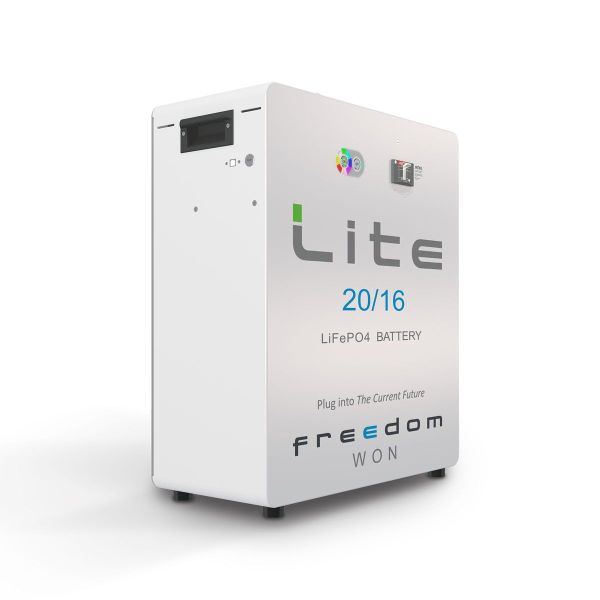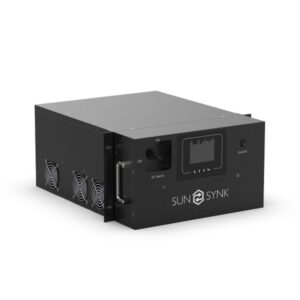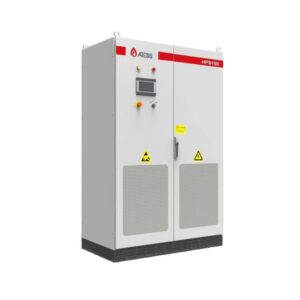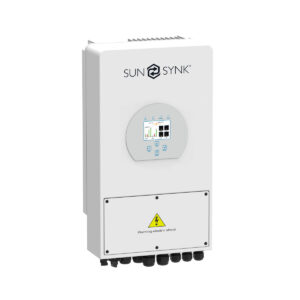Description
High Performance
- High energy density: more energy less weight.
- High charge currents (Shortens the charge period – essential for a proper solar power system).
- High discharge currents (Enabling for example electrical cooking on a small battery bank).
- Long battery life (up to six times the battery life of a lead acid battery).
- High efficiency between charging and discharging (Very little energy loss due to heat development).
- Higher continuous power available.
Rugged
- A lead acid battery can fail prematurely due to sulphating if it is left partially charged, fully discharged or rarely fully charged for long periods of time. A Lithium Iron Phosphate battery does not need to be kept fully charged, has a wide operating temperature range and excellent cycling performance. They are therefore THE battery for very demanding applications.
Efficient
- The typical “round trip” energy efficiency (energy that can be taken out of the battery compared to energy required to re-charge) for lead acid batteries is ~ 70%. For a LiFePO4 battery it is >96%. The Final C20% charge for a lead acid battery is particularly inefficient with inefficiencies of ~ 50% and can take a very long time for the battery to become completely charged. In contrast a LiFePO4 battery will always achieve 96% efficiency and so can be fully charged more quickly while wasting less energy.
Size & Weight
- LiFePO4 batteries save up to 70% in space and 70% in weight compared to lead acid.
Battery Management System
- It is vital that an advance Battery Management System (BMS) is used to control the battery charging. This is important to actively balance the individual cells that make up the battery and prevent under or over voltage which can otherwise destroy the battery. It is also important for the battery to be able to communicate with the rest of the system.
| FREEDOM LITE | HOME 20/16 |
| Total Energy Capacity [kWh] | 20 |
| Energy, 80% DoD [kWh] | 16 |
| Energy, 90% DoD [kWh] | 18 |
| Current Capacity [Ah] | 400 |
| Max & Cont. Charge Current [A] | 400 |
| Max & Cont. Charge Power [kW] | 20 |
| Max/Cont. Discharge Current [A] | 480/400 |
| Max/Cont. Discharge Power [kW] | 24/20 |
| Max Recommended Inverter Total Rated Power (cont.) [kVA] |
15 |
| Nominal Voltage [V] | 52V, to suit 48V Inverters, min 47V, max 56V |
| Weight [kg] | 130 |
| Dimensions on or against wall – Height x Width x Depth [mm] |
745x490x265 |
| Enclosure | Aluminium – powder coated white front, rated for indoor use |
| DC Connection – Integrated Cables,[no. per electrode] | 1x 50mm² |
| Control Interface | RJ45 Socket x 2 – CAN Bus for Interfacing with Compatible Inverters and System Controllers, and communication for the connection of parallel batteries – note that parallel batteries must all be of the same model. |
| Protection | Shunt Trip Circuit Breaker sized to suit max current, can be tripped by BMS if critical fault, manual reset. Includes overcurrent, cell under and over voltage, temperature, weak cell detection, minimum SOC control |
| Human Interface | State of Charge Display (0 to 100%), Error light, Error Reset Button, Serial RS232 Plug for Programming (note the Lite 80/56 has a CAN port for programming and not a serial port), WiFi remote monitoring (optional accessory) |
| Warranty | 10 years or 4 000 cycles for average 80% DoD, and max 90% DoD |
| Service Life | >16 years (>5 500 cycles) expected life at 80% DoD (1), >20 years (>7 500 cycles) at 50% DoD |
| Essential Accessories | Note that for connecting the battery to a PC a special adapter is required:
CAN Bus Termination Resistor – one required per battery, available from Freedom Won (not included with battery) |




